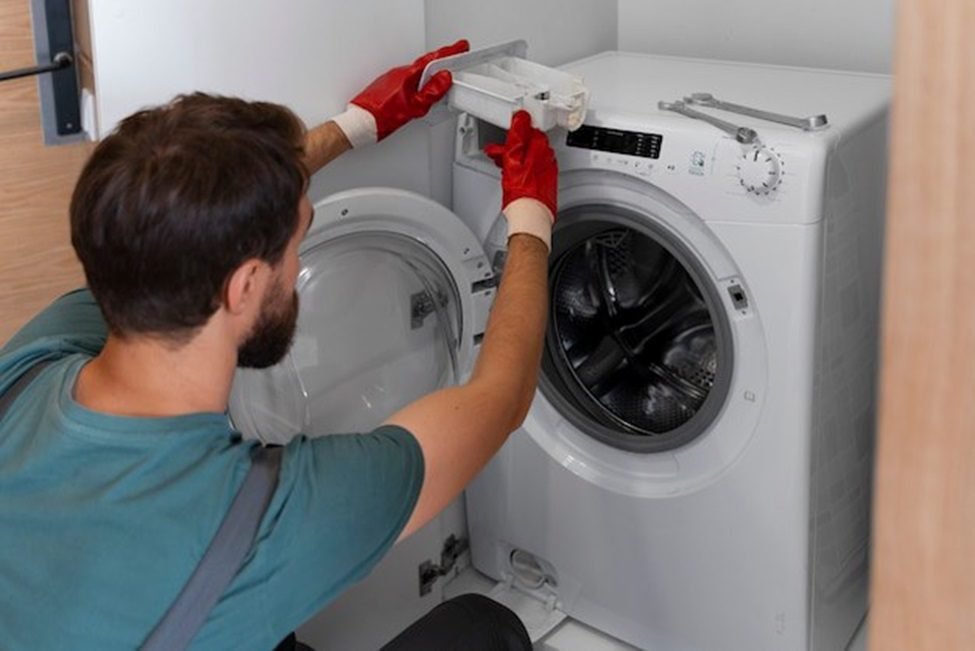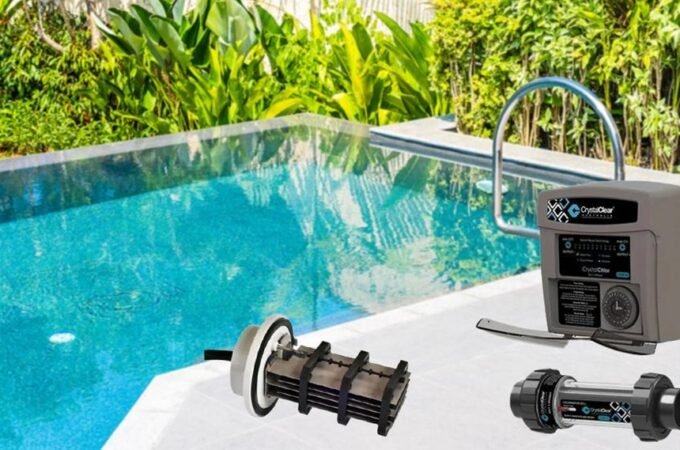
5 Reasons Why Overloading a Washing Machine is Bad?
In the hustle and bustle of daily life, it’s not uncommon for laundry day to be a bit of a chore. We’ve all been there – staring at the overflowing laundry basket, wondering if we can squeeze just one more item into the washing machine. Overloading a washing machine may appear to be a time-saving technique, but it has a number of downsides that might result in more than wrinkled clothes.
Let’s look at why overloading your trusted appliance is a recipe for disaster.
Table of Contents
Toggle1. Poor Cleaning and Odour Issues
Washing machines are designed to handle a specific amount of clothes in each cycle. When clothes are jam-packed in the washer, detergent and water struggle to reach every surface, leaving some clothes just partially clean. This can cause unpleasant odours in the clothes and even mould and mildew growth within the machine.
An overloaded front load washing machine, in particular, is susceptible to mould issues if not properly maintained. The combination of overloading and inadequate airflow can create a damp environment inside the machine, providing the perfect breeding ground for mould. Not only does this compromise the cleanliness of your clothes, but it can also pose health risks for you and your family.
2. Increased Wear and Tear
Overloading a washing machine causes excessive stress on its components, including the motor, drum, and suspension system. A couple of extra clothes may not appear to be a problem, but when wet, these clothes carry a large amount of weight.
The added weight and strain can cause the machine parts to wear out more quickly, leading to costly repairs or the need for a replacement sooner than expected.
3. Extended Wash Times
If you have ever been confused as to why your laundry takes forever to finish, overloading might be the culprit. When pushed past its limits, the machine struggles to finish its cycles efficiently. The motor has to work harder, and the washing machine may need to repeat certain wash phases to achieve a thorough wash.
For example, in the case of an LG washing machine overload, the machine’s sensors may detect the excessive load and automatically extend the wash time to compensate. While this feature is designed to prevent damage to the machine, it also means you’re spending more time and energy on each load than necessary.
4. Imbalance Problems
Unevenly distributed clothes in an overloaded washer results in unbalanced spinning, causing the machine to rattle, shake, and possibly move across the room. Excessive vibration during the spin cycle causes noise disturbances and poses a safety risk if you are near the machine. Additionally, an imbalanced load can cause the drum to hit against the sides of the machine, potentially causing damage to both the drum and the outer body.
5. Increased Energy Consumption
In addition to the immediate impact on cleaning performance and machine health, overloading your washing machine might have some other expensive consequences. An overloaded machine requires more energy to function because it strains to spin a greater load and compensate for the imbalance. This results in increased electricity and water expenses as well as a less environmentally friendly laundry routine
How to Avoid Overloading the Washing?
You can follow these tips to prevent overloading your machine:
Read the Manual
Before using your washing machine, take the time to thoroughly read the manufacturer’s manual. It will provide specific instructions regarding load capacity and other essential maintenance guidelines.
Don’t Overfill the Drum
Follow the recommended load capacity mentioned in the manual. It is better to do multiple smaller loads than to potentially damage the machine because of overloading.
Distribute Weight Evenly
When loading the machine, distribute the weight of the clothes as evenly as possible to prevent imbalance issues during the spin cycle.
Leave Room for Movement
Allow some room for the clothes to move freely during the wash cycle. Overloading the machine restricts the movement and reduces cleaning effectiveness.
Conclusion
So there you have it, overloading your washing machine is never a good idea. It may seem convenient at the moment to squeeze in that extra clothing item, but it’s just not worth the potential damage or expensive repairs. Do your wallet and washing machine a favour and stick to the recommended load sizes.





